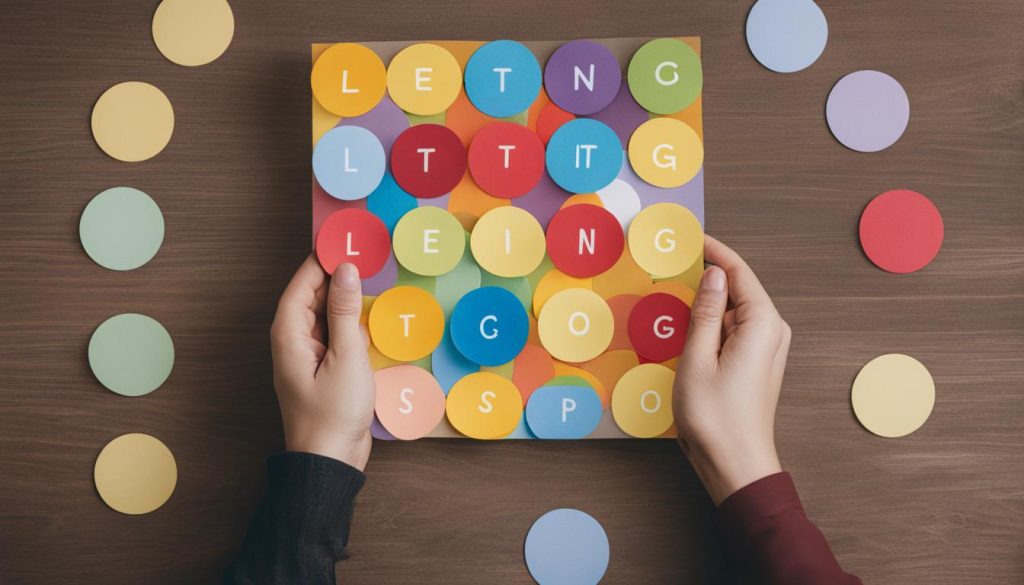Moving on from a breakup can be challenging. Coping with the end of a relationship or the heartbreak of unrequited love can feel overwhelming. But don’t worry – there are practical tips and strategies to help you heal and move on from your ex.
In this article, we’ll explore effective ways to deal with heartbreak and learn how to get over someone. Whether you’re healing after a long-term relationship or trying to move on from an unreciprocated crush, these expert tips from psychologists and therapists can guide you through the process.
How to Get Over Someone Easily?
Letting Yourself Grieve
When going through a breakup, it’s essential to allow yourself to grieve the loss of the relationship. It may feel overwhelming and painful, but giving yourself permission to experience and process your emotions is crucial for healing.
Sit with your sadness and acknowledge the pain you’re feeling. It’s natural to experience a range of emotions, such as sadness, anger, and confusion. Take the time to understand what aspects of the relationship you are mourning and be honest with yourself about your feelings.
Avoid suppressing your emotions, as doing so can prolong the healing process. Allow yourself to feel the pain, as difficult as it may be. By allowing yourself to grieve, you’re giving yourself the opportunity to heal and move forward.

Seeking Support from Others
In times of emotional distress, it is crucial to lean on others for support. Building a strong support system can help you navigate the challenges of getting over someone and provide the necessary emotional stability you need. Here are some effective ways to seek support from others:
Talking to Friends and Family
Reach out to trusted friends and family members who can provide a listening ear and a supportive presence. Opening up about your feelings and experiences can help you process your emotions and gain valuable insights. Their perspective and advice may offer comfort and guidance during this difficult time.
Seeking Professional Help
Consider speaking with a therapist or counselor who specializes in relationships and emotional healing. These professionals can provide a neutral and safe environment for you to express your thoughts and feelings. They can offer valuable guidance, coping strategies, and tools to help you move forward in a healthy and positive way.
Building a Support System
In addition to friends, family, and professionals, it can be beneficial to connect with others who are going through or have gone through similar experiences. Joining support groups or online communities allows you to share your stories, gain insights from others, and find solace in knowing that you are not alone. Building a support system provides a sense of camaraderie and understanding that can be instrumental in your healing journey.

Having a support system is essential in giving you the strength and encouragement you need to navigate the rollercoaster of emotions after a breakup. Whether it’s a heartfelt conversation with a close friend or the guidance of a qualified professional, seeking support from others can provide invaluable comfort, advice, and reassurance. Remember, you don’t have to face this challenging time alone.
Creating Structure in Your Days
While it’s important to allow yourself time to grieve, it’s also helpful to create structure in your days. Keeping busy and maintaining a routine can provide a sense of stability and help distract you from constant wallowing. Engaging in activities that you enjoy and planning your days can provide a positive focus and bring a sense of purpose to your healing process.
Here are some tips for structuring your days:
- Create a daily schedule: Set a routine for yourself by planning your day ahead. Allocate specific time slots for activities that interest you, such as exercising, pursuing hobbies, or learning something new. Having a schedule helps you stay organized and prevents aimlessness.
- Engage in activities that bring you joy: Identify activities that make you happy and engage in them regularly. It could be anything from reading a book, listening to music, cooking, or spending time in nature. These activities serve as a form of self-care and can help uplift your mood.
- Stay socially connected: Make time to socialize with friends and loved ones. Plan virtual hangouts, phone calls, or meetups (if possible) to maintain connections and feel supported. Engaging in meaningful conversations and spending time with loved ones can provide a sense of comfort and belonging.
- Set goals and work towards them: Having goals gives you a sense of direction and motivation. Identify personal or professional goals that you’d like to achieve and break them down into smaller, manageable tasks. By working towards these goals, you can feel a sense of accomplishment and progress.
Benefits of structuring your days:
Creating structure in your days during the healing process has several benefits:
- Reduces excessive rumination: Engaging in activities and maintaining a routine helps redirect your focus away from negative thoughts and excessive rumination about the past relationship.
- Promotes personal growth: By engaging in activities and pursuing personal goals, you can nurture personal growth and focus on self-improvement. This time allows you to rediscover yourself and explore new interests.
- Enhances overall well-being: Being busy and engaged in activities that bring you joy can uplift your mood, boost your energy levels, and enhance your overall well-being. It helps replace negative emotions with positive experiences.
- Builds resilience: Establishing structure and maintaining routine during challenging times builds resilience and fosters a sense of stability. It can help you navigate through difficult emotions and promotes mental and emotional strength.

| Activity | Time Slot |
|---|---|
| Morning workout | 7:00 AM – 8:00 AM |
| Breakfast and journaling | 8:00 AM – 9:00 AM |
| Work or study | 9:00 AM – 12:00 PM |
| Lunch break | 12:00 PM – 1:00 PM |
| Pursue hobbies or engage in self-care | 1:00 PM – 3:00 PM |
| Connect with friends or family | 3:00 PM – 4:00 PM |
| Work on personal goals | 4:00 PM – 6:00 PM |
| Evening relaxation time | 6:00 PM – 8:00 PM |
| Dinner and unwind | 8:00 PM – 9:00 PM |
| Read or watch a movie | 9:00 PM – 10:00 PM |
| Quality sleep | 10:00 PM – 7:00 AM |
Having a structured schedule like the one above offers a balanced day with a variety of activities. However, it’s important to customize your schedule to align with your personal preferences and commitments.
Focusing on Self-Care
During this challenging time, it’s essential to prioritize self-care as part of your healing process. Engaging in self-care activities can significantly boost your emotional well-being and help you regain a sense of control and positivity. Take some time out for yourself and indulge in pampering activities that promote relaxation and self-nurturing.
One way to pamper yourself is by treating your skin to a rejuvenating facial. A facial not only provides physical benefits like deep cleansing and hydration but also allows you to unwind and focus on self-care. Consider booking a session at your favorite spa or salon, or even trying out a DIY facial at home using nourishing and soothing skincare products.
Aside from pampering your skin, it’s also important to engage in activities that bring you joy and fulfillment. Take the opportunity to immerse yourself in your favorite hobbies or explore new ones that capture your interest. Whether it’s painting, writing, gardening, or playing a musical instrument, find activities that bring you a sense of fulfillment and help distract your mind from the pain of the breakup.
Furthermore, focusing on personal development can be an empowering way to boost your self-esteem and navigate post-breakup life with confidence. Consider setting goals for yourself, whether they be related to your career, education, or personal growth. Invest your time and energy in activities that align with your passions and values, and that contribute to your overall development as an individual.
Self-esteem plays a crucial role in the healing process, so it’s important to actively work on boosting your self-confidence. Engage in positive affirmations and self-talk, focusing on your strengths and accomplishments. Surround yourself with supportive and uplifting people who encourage you to embrace your worth and value.
| Self-Care Activities | Benefits |
|---|---|
| Taking relaxing baths | Promotes stress relief and relaxation |
| Engaging in regular exercise | Improves mood and releases endorphins |
| Practicing mindfulness and meditation | Reduces anxiety and increases self-awareness |
| Journaling or writing in a gratitude diary | Fosters self-reflection and gratitude |
| Treating yourself to a spa day or massage | Relieves physical and emotional tension |
Remember, self-care is not selfish but rather a necessary and compassionate practice that allows you to replenish your energy and focus on your well-being. By placing importance on self-care, pampering yourself, focusing on personal development, and boosting self-esteem, you can navigate the post-breakup period with resilience and embrace a brighter future ahead.
Reflecting and Learning from the Past Relationship
During this healing process, take the opportunity to engage in self-reflection and gain a deeper understanding of your past relationship. Reflecting on your experiences can provide valuable insights into your own behaviors, emotions and patterns within relationships. By identifying what worked and what didn’t work for you, you can better understand your needs and preferences in future relationships.
Consider the following aspects:
- Relationship patterns: Take a step back and analyze the recurring themes or dynamics that emerged in your past relationship. Recognizing these patterns can help you become aware of any unhealthy behaviors or patterns that may have contributed to the breakup.
- Setting boundaries: Review the boundaries that were in place or perhaps lacking in your previous relationship. Ask yourself if you communicated your needs effectively and if you were able to maintain healthy boundaries. Setting clear boundaries moving forward will help you establish healthier and more fulfilling connections.
- Identifying personal growth areas: Reflect on the personal growth areas that have emerged as a result of your past relationship. Think about the areas in which you feel a need for self-improvement or development. This could include areas such as communication, emotional intelligence, or self-esteem.
This self-reflection process is an opportunity to learn from your past and make positive changes as you move forward. By gaining a deeper understanding of yourself and your relationship patterns, you can set yourself up for healthier and more fulfilling relationships in the future.

| Aspects to Reflect On | Questions to Consider |
|---|---|
| Relationship Patterns | What recurring themes or dynamics were present in your past relationship? |
| Setting Boundaries | Did you establish and communicate your needs effectively? Were you able to maintain healthy boundaries? |
| Identifying Personal Growth Areas | What areas do you feel a need for self-improvement or development in? (e.g., communication, emotional intelligence, self-esteem) |
Embracing the Future
As you navigate through the healing process, it’s essential to let go of the past and focus on the future. This is your opportunity to shape a new chapter in your life, filled with possibility and growth. By looking ahead, setting goals, envisioning a fulfilling future, and embracing independence, you can create a life that brings you joy and fulfillment.
Setting goals is an empowering way to steer your life in the direction you want it to go. Identify what you want to achieve and create a roadmap to reach those milestones. Whether it’s personal, professional, or both, setting goals provides a sense of purpose and keeps you motivated.
Envisioning a fulfilling future allows you to visualize the life you desire. Picture yourself happy, content, and surrounded by positive experiences. Imagine the possibilities and believe in your ability to turn those visions into reality.
Embracing independence is another crucial aspect of embracing the future. Embrace the freedom to make choices and decisions that align with your values and aspirations. Take ownership of your life and relish in the opportunities that come with being independent.
Benefits of Embracing the Future
When you embrace the future, you open yourself up to a world of possibilities. Here are some key benefits:
- Increased motivation and drive
- A sense of purpose and direction
- Greater self-confidence and empowerment
- Opportunities for personal and professional growth
- Improved decision-making skills
Remember, while it’s natural to feel uncertain about what lies ahead, trust in your ability to navigate the journey and create a fulfilling life. Embracing the future is an act of resilience and strength. Let go of the past, set goals, envision a fulfilling future, and embrace your independence. Your future is in your hands, and the possibilities are endless.
Conclusion
In summary, getting over someone and moving on after a breakup is a process that requires time and emotional healing. It is crucial to allow yourself to grieve and go through the necessary stages of healing. Seek support from friends, family, or even professional help, as their guidance can provide you with the emotional support you need during this challenging time.
While healing, make self-care a priority. Engage in activities that bring you joy and help boost your self-esteem. Take the opportunity to reflect on your past relationship, identify areas for personal growth, and set boundaries for future relationships.
Remember, healing is a personal journey, and everyone’s timeline for moving on may vary. Be patient with yourself as you navigate through the healing process. Trust that with time, you will be able to overcome the pain, find happiness again, and embrace a fulfilling future.
FAQs
How do I get over someone easily?
Getting over someone takes time and emotional healing. It’s important to allow yourself to go through the grieving process and seek support from others. Focus on self-care, reflection, and creating a fulfilling future for yourself. Remember that healing is a personal journey, and everyone’s timeline is different. Be patient with yourself and trust that with time, you will be able to move on and find happiness again.
How can I focus on self-care after a breakup?
Engage in self-care activities that help boost your emotional well-being. Treat yourself to pampering activities like getting a facial or indulging in your favorite hobbies. Focus on personal development and building self-esteem by engaging in activities that make you feel confident and fulfilled.
How can I reflect and learn from my past relationship?
Use this time to reflect on the past relationship and learn from it. Identify what worked and what didn’t work for you in the relationship. Set boundaries for future relationships based on your learnings and identify areas for personal growth. This self-reflection can help you become more self-aware and better prepared for future relationships.
How can I embrace the future after a breakup?
Let go of the past and focus on the future. Set goals and envision the kind of life you want to lead moving forward. Embrace your independence and see this as an opportunity for personal growth and reinvention. While it’s natural to feel uncertain, remind yourself that you have the power to create a fulfilling and happy future for yourself.
What is the summary of getting over someone and moving on from a breakup?
Moving on from a breakup can be challenging but with time and support, you can overcome heartbreak. Give yourself permission to grieve, seek support from others, create structure in your days, focus on self-care, reflect on the past relationship, and embrace the future. Healing is a personal journey, so be patient with yourself and trust that you will find happiness again.

